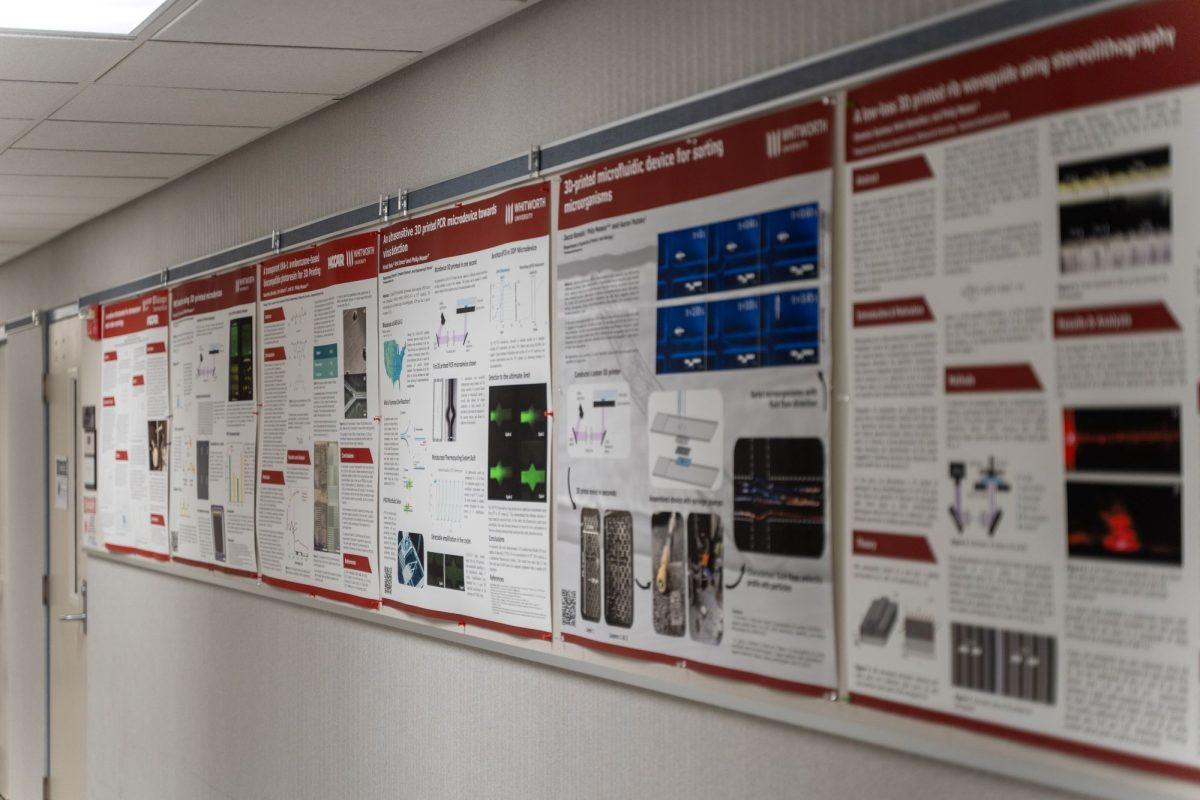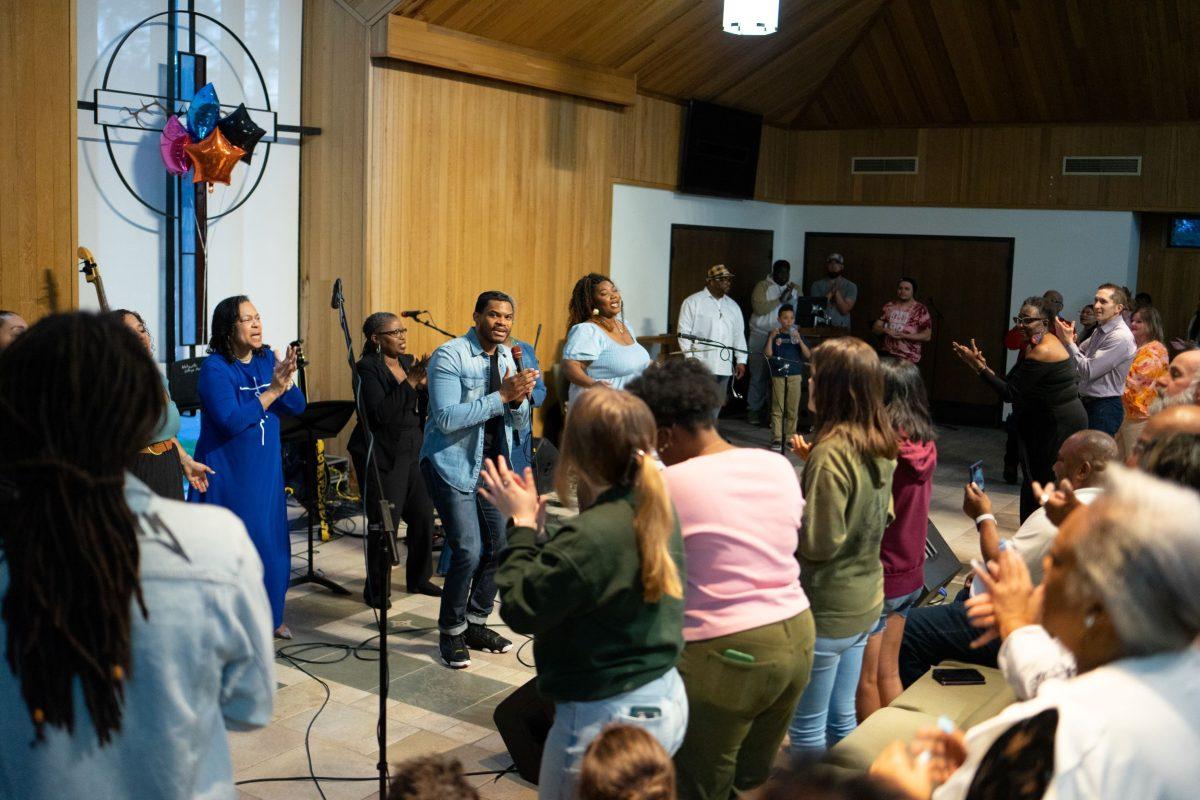“You can make a huge difference in the lives of students, and can invest in students in ways that will add great value to their educational experience,” said Dr. Michael Le Roy, provost and executive vice president of Whitworth.
Tuesday evening marked the last of Le Roy’s “Dean’s Dialogues” at Whitworth.
The discussion, which included three members of Whitworth’s faculty and one student, was concerned primarily with the educational achievement gap, a large problem facing America’s educators today. Education.com defines the achievement gap as “the difference in performance between low-income and minority students compared to that of their peers on standardized tests.”
Le Roy opened the discussion by stating the purpose of the “Dean’s Dialogue” series.
“The Dean’s Dialogue is a program designed to promote Whitworth’s founding mission of providing an education of mind and heart. Tonight we engage a vexing problem – the achievement gap,” Le Roy said.
The discussion began with LeRoy introducing the four panelists who would be engaging in discussion. First was Dr. Brian Benzel, vice president for finance and administration at Whitworth and former Superintendent of Spokane schools. Next was Dr. Larry Burnley, assistant vice president of diversity and intercultural relations. He was followed by Dr. Randy Michaelis, professor and chair of undergraduate teacher education. Junior Macy Olivas was the final panelist and, as LeRoy pointed out, the first ever student to serve on the panel for a “Dean’s Dialogue.”
The discussion was then opened for panelists to present their individual backgrounds and give their perspective on the issue at hand.
Benzel began with his background, saying that he was going to approach the issue from a practitioner’s point of view.
He noted that schools are increasingly trying to pack more and more content into the average six-hour school day, totaling “about 1080 hours of instructional time per year, with a geometrically increasing amount of information, data, and knowledge that students are expected to learn.”
To solve this problem, Benzel said his focus was mainly on reform in the schools themselves.
“There is a strong effort underway in American schools to be clear about defining standards about what students should know and learn, developing curriculum to reflect that, and supporting teachers in helping each individual student learn the necessary core set of skills,” Benzel said.
Olivas was next to speak. She approached the issue from the point of view of someone who has witnessed the education gap firsthand. She said she “grew up in a neighborhood that resembles the neighborhoods in which our nation’s achievement gap is most prominent today.”
However, she said, unlike other students in her neighborhood, she had the privilege of attending a charter school that got her out of her neighborhood. Because of this opportunity, Olivas is of the first generation in her family to go to college. Her message was to the student body at Whitworth. As undergraduates, “our voices are essential in propelling this movement forward,” she said.
Michaelis, the next speaker, approached the topic from a different perspective, saying that over the years he has “watched [society] try to fix the students, the family, the teacher, the school district, the A, and the society overall.”
His argument was that, in fixing any problem, society will always choose to address the most economically feasible option. This alluded to his main point – that attempting to fix the achievement gap problem by re-training teachers alone is the wrong approach.
Finally, Burnley opened with his background and perspective. He said, as a historian, “it is important to understand that these gaps in achievement are consequences of historical patterns, as persistent gaps…We need to understand why they occur and take steps to fix them.”
He proposed “educating the educators,” advocating for the education of teachers on why the achievement gap persists, as well as showing them how to eliminate teaching methods that perpetuate the problem.
After members of the panel gave their backgrounds and presented their views, Le Roy asked Olivas and Benzel to elaborate on how the notion of “privilege” has influenced their perspectives on the achievement gap problem. Olivas’s main response to Le Roy’s prompt was to note that children who attend schools in white, wealthy communities do not have to be as motivated to succeed as do students in poor, minority communities. She said she believes that this alone has a huge effect on the problem.
Benzel, in response to LeRoy and to Olivas, went on to state that there is much more to the issue of the achievement gap than one single problem. He said that this notion of “privilege” is “a daunting challenge [to confront] when people outside the system look at student performance and then start simplifying solutions or making the student, teacher, principal, or school the scapegoat.”
Other members of the panel then reflected on these thoughts, and in the end no single solution was put forward. Panelists responded to several questions from the audience about their various points of view on the topic. At the conclusion, all panelists agreed that the achievement gap is a persistent problem in education that needs to be addressed at many different levels and on many different scales in order for the problem to be greatly reduced and eventually eliminated.
Le Roy concluded the Dean’s Dialogue with an inspiring statement. To the panelists, he said “As someone who is an observer-participant in this conversation, I am heartened and encouraged…to be in an institution where we are training teachers [and students] to go out and be agents of change.”
To learn more about how you can help close the achievement gap, visit:
www.achievementfirst.org or www.teachforamerica.org.
Contact Nick Meisner at [email protected]





